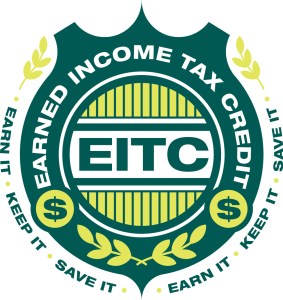Join our team of experienced tax professionals at R&G Brenner! We're hiring CPAs, EAs, office managers, assistants, and building maintenance staff. Apply now for exciting opportunities in tax and accounting services.
Do I Qualify for the Earned Income Tax Credit (EITC)?

Although the Earned Income Tax Credit (EITC) can sound daunting and confusing for taxpayers and tax professionals alike, there are ways to navigate the murky waters of this credit to maximize its benefits. This tool can be important for low- and middle-income families and singles looking to save money where they can. Breaking down this tax credit isn’t difficult once you understand what it is and how to file for it.
What is the EITC Credit?
Approved in 1975 by Congress, The EITC is a refundable federal income tax credit designed primarily for low- to middle-income working people to not only mitigate the burden of paying taxes for social security but also to give singles and families an incentive to work. The individual who qualifies for the EITC receives a tax refund, according to the Internal Revenue Service (IRS). Basically, the EITC increases a taxpayers refund by 100% of the value of the credit. What exactly is earned income? Well, this includes all taxable income a person gets from working or obtains through payments for disability. Broken down in more detail, it includes any income received from salaries, tips and pay; benefits as a result of a union strike; long-term disability pay before the age of retirement; and net earnings from being self-employed.
Do I Qualify?
Taxpayers are required to meet certain requirements to be able to take advantage of the EITC. They must file a tax return even in the event they don’t owe taxes. If you don’t owe taxes, you don’t need to file a tax return typically, but to qualify for the credit you must file either way. The money you have earned must have come from gainful employment by someone else or through self-employment, plus it must meet rules set forth by the IRS. There are also additional rules for workers who do not have a qualifying child or do not have a child meeting those rules for them. In general, EITC rules state that:
- you must have a valid social security number
- you must currently be receiving income from some source, whether through someone else or self-employment
- must file as married filing jointly
- you must be a U.S. citizen, resident alien for the entire year, or a nonresident alien who is married to someone who is a U.S. citizen or resident alien.
Further rules state that you can’t be a qualifying child for someone else, you can’t file Form 2555 or 2555-EZ, you must meet certain gross and earned income limits, and income from your investments must not exceed certain stated limits. The IRS lists all the restrictions and EITC qualifications on its website. Keep in mind there are special rules that apply to the military, clergy members, those getting disability payments, and those affected by natural disasters.
Everything you want to know about EITC can be found here. The IRS recommends gathering all the necessary documents before filing your taxes. If you need assistance especially in regards to filing for the EITC, contact an R&G Brenner Tax professional today, and we will be happy to assist you.









